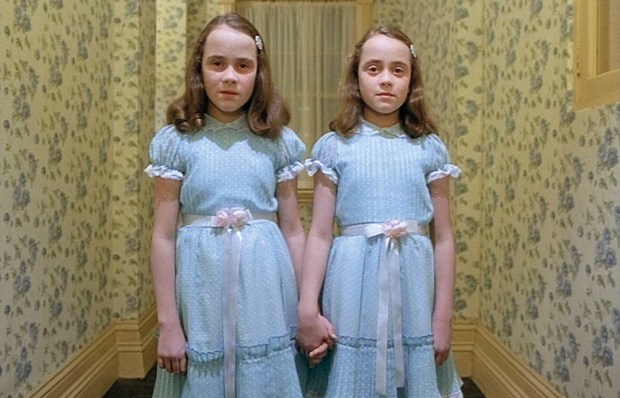My mum had a friend at university who had been called ‘Pudding’ at school. They’d sometimes be walking down the street, and someone who had known the now-svelte adult as a chubby 13-year-old would say ‘Hello, Pudding’. As I get ready to start at university myself in October, it’s in the knowledge that my schoolgirl self will be even harder to escape.
Reinventing yourself at the end of sixth form was once a time-honoured rite of passage, hindered only by a few easily avoided old acquaintances. In Brideshead Revisited, Charles Ryder frees himself from the self-consciously serious circle of his school days with relative ease: ‘At Sebastian’s approach these grey figures seemed quietly to fade into the landscape and vanish, like highland sheep in the misty heather.’ No one’s past much resembles misty heather anymore — social media has changed all that.
Were he arriving at Oxford today, Charles’s Facebook profile would bring his sixth form self along for the ride. He’d be tagged in photographs with a prefect badge pinned to a badly fitting uniform, a video of him making a pompous speech at his school prize-giving would be doing the rounds and his timeline would be an endless stream of exam-related posts from his all-male mates.
His meagre number of Facebook friends would be further cause for humiliation. Anything less than 600 is considered embarrassing: three quarters of them may be people you met at a party four years ago and haven’t seen since, but don’t have them as friends on Facebook and you’ll look like someone who doesn’t meet many people at parties.
So having vomited through Charles’s window and subsequently added him on Facebook, Sebastian would have thought twice before sending flowers and a lunch invitation. Charles, too, would have been hesitant: it’s far harder to cut loose when the internet is on hand to remind you of who you were in sixth form. Sebastian’s Facebook page — a montage of photos from wild nights out, in which neither the girls nor the outfits ever appeared twice — would have made it clear that some cutting loose was required.
In truth, Sebastian would probably have avoided Charles’s window in the first place. A modern Charles Ryder would have arrived at university already earmarked as the sort of person who was unlikely to be good-humoured about drunken exploits.
Facebook freshers’ pages, to one of which all my university-bound friends belong, point soon-to-be undergraduates towards the profiles of their future peers months before the start of term. These groups purport to help members make friends before they arrive — but the real draw is that they streamline Facebook stalking.
When I finally meet my fellow students in freshers’ week, it’ll be through that strange ritual, so familiar from school, whereby you ask the usual questions and already know the answers. You may exclaim ‘No way! That’s so cool!’, but you know they spent their gap year in Nicaragua. You also know that they went to school in Bristol, that they play tennis and that they once went to a Justin Bieber concert. You’ve seen them drunk in Ayia Napa and you know that their date to the leavers’ ball was called Sam and had an unfortunate nose. But you must not admit to any of this. There is no greater breach of online etiquette, no surer way to consign yourself to the social dustbin, than the words ‘So, I saw on your Facebook that…’
If it’s now impossible to shed your sixth-form skin altogether, you can at least exfoliate the rough patches. One of my friends is a keen violinist, and her Facebook page has always been peppered with photos from concerts and other evidence of her musical talents. She recently made an effort to ‘tone it down a bit’ before university, because she wants to have a chance to stop being ‘that girl who plays a lot of classical music’.
Another friend told me she’d trawled through her Facebook wall and deleted everything she’d put up between the ages of 13 and 16: ‘There were so many pictures of me pouting, it whole a day to get rid of them all.’ Everyone I asked was planning a pre-term Facebook friends cull to remove undesirable acquaintances from their feeds. One school friend has already de-friended over 700 people, bringing her dangerously close to the 600 mark.
Excessive though this may seem, time spent on a Facebook cleanse will prove to be time well spent. An oft-told horror story at my school was of a girl whose drunken post about her sexual prowess was commented on by her former teacher.
However far from home your university town — with the internet preserving your sixth form self, your awkward adolescence will be hot on your heels.
Got something to add? Join the discussion and comment below.
Get 10 issues for just $10
Subscribe to The Spectator Australia today for the next 10 magazine issues, plus full online access, for just $10.
You might disagree with half of it, but you’ll enjoy reading all of it. Try your first month for free, then just $2 a week for the remainder of your first year.













Comments
Don't miss out
Join the conversation with other Spectator Australia readers. Subscribe to leave a comment.
SUBSCRIBEAlready a subscriber? Log in